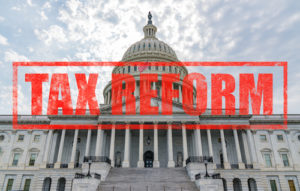
The White House may revive past efforts to alter the business tax scheme as the midterms near.
It would levy a 15% minimum tax on significant organizations’ book income (reported to shareholders on their income statement), instead of tax liability to ensure all enterprises pay annually.
This impulse appears equitable. In fact, due to a peculiarity in the accounting regulations surrounding spectrum licensing, this idea could inhibit the 5G broadband deployment.
The Amazon Tax
The book-income tax is designed to be a corporate AMT.
As part of President Joe Biden’s intended reform plan, it would have funded the now-defunct “Build Back Better” program.
I know there's more pressing news today. But if you want to take a break from that, you can read my short @AEItech piece about how the proposed corporate minimum tax uniquely harms holders of spectrum licenses.https://t.co/FidSQInPyA via @AEI
— Daniel Lyons (@ProfDanielLyons) May 3, 2022
Large corporations will be required to pay a minimum tax bill equivalent to 15% of their book revenue, limiting their ability to cut their taxable income via tax benefits.
Book income is computed to provide clarity to investors by the politically neutral Financial Accounting Standards Board.
Unlike tax accounting, which is designed to achieve specific goals via tax breaks, corporate net income of $2 billion or greater is estimated to be subject to book-income taxes in 2021.
Imperfect Spectrum
While the proposed book-income tax targets significant enterprises, it explicitly targets wireless carriers and those with spectrum rights. Unlike most other business assets, spectrum license fees are not subtracted from a firm’s net earnings.
According to the neutral Tax Foundation, spectrum licenses are indefinite-lived assets. They do not degrade over time, like a house or a car.
These permits cost companies a lot of money ($80 billion in 2021 alone), yet those expenses aren’t reflected in their profits.
To encourage corporations to invest in these permits, the tax code allows them to deduct the amount over 15 years, but book income removes that incentive.
#UnintendedConsequences of proposed minimum #tax payments is higher #spectrum prices. Damaged business models for mobile operators and higher prices for consumers are possible. https://t.co/28HlZfQotf pic.twitter.com/FuhuV5gYgu
— Gary Kim (@garykim) May 3, 2022
That change would effectively raise the cost of spectrum licenses.
The Tax Foundation says a special tax on book income would tax past spectrum acquisitions and raise the tax load on future bandwidth purchases.
As a result, companies can pay for spectrum permits, but would not be able to deduct these expenditures, therefore increasing the cost of licenses by 15%.
The Tax Foundation predicts the tax burden on bandwidth licensees will rise by $7.2 billion over the next decade, based on historical purchases alone, not adding future acquisitions.
This markup may prevent future spectrum investment. The tax penalty may drive corporations to buy fewer permits or bid lower prices.
This finding is particularly ludicrous, given that the US government sells such licenses and keeps the profits in the US Treasury. The government is basically stealing to pay.
However, as the Tax Foundation points out, complementary expenditures on cellphone towers and other facilities are expected to reduce total spending and deployment.
According to New York Law School Professor Michael Santorelli, the US tax code should not discourage 5G investment while China and others support it.
It’ll probably hit the broadband industry hard. The disparity in bids between enterprises subject to the book tax rate and those not will skew spectrum markets.
It will also reduce the intermodal competitiveness that has historically spurred industry expansion, as the effect will be seen only by spectrum licensees.
America’s fundamental deficits are an issue, and the White House should look at doing future projects like “Build Back Better” revenue neutral. Though, as Duke Professor Scott Dyreng said, the solution is to alter major firms’ aggressive tax deductions.
A simple book-income tax risks politicizing financial accounting rules and having unintended consequences, especially for a broadband business that wants to provide cutting-edge wireless internet across the country.
















